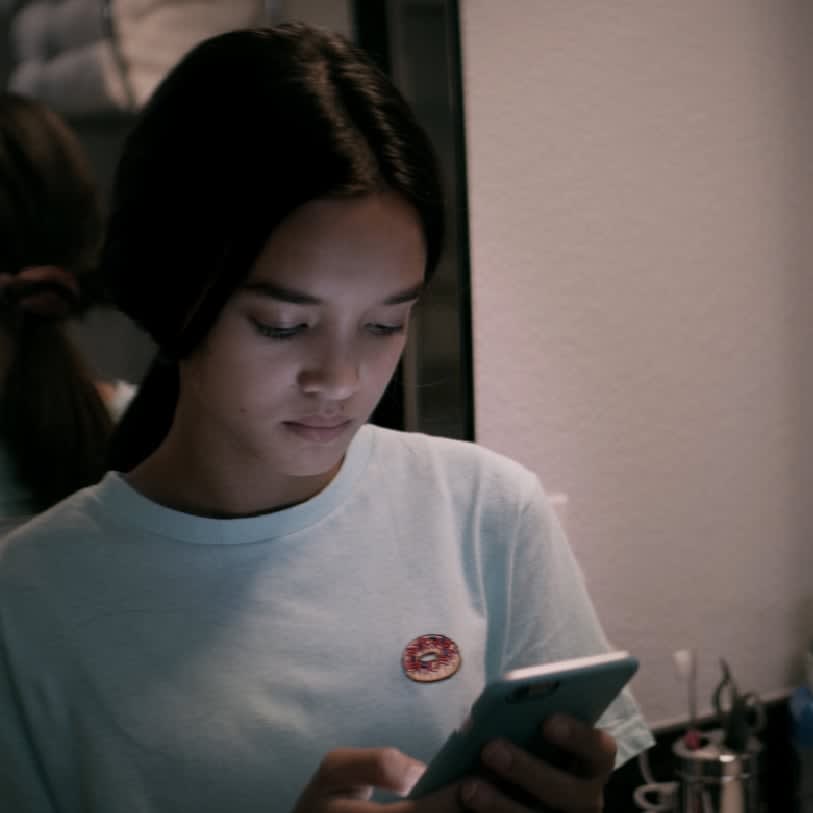Ever lie on the couch with the intention of relaxing for a few minutes with your phone in hand only to spend hours mindlessly scrolling through apps like Reddit, Instagram, and Twitter? Yep, us too. And while social media is seamlessly woven into the fabric of our everyday lives in 2020, the Netflix documentary The Social Dilemma shows how harmful spending endless hours on social media can be, particularly when it comes to our children.
Starring Skyler Gisondo and Vincent Kartheiser, The Social Dilemma oscillates between scripted scenes showing the negative – but all too common – effects social media has on the average American family and real-life testimony from current and former Silicon Valley executives on the various pitfalls of apps like Facebook, Instagram, and TikTok.
Eye-opening and downright jaw-dropping at points, the documentary highlights just how dependent we are on our smartphones and what constantly staring at a screen full of apps does to our mental health. As parents, we know the importance of practicing what we preach, however, staying off our favorite apps or work email is easier said than done.
Parents who want to reevaluate their family’s relationship with social media should consider the following takeaways from The Social Dilemma. Read ahead to learn how social media may be negatively affecting your kids’ psyches and what to do about it.
Related: 3 Ways to Stop Your Kids' Privileged Thinking

